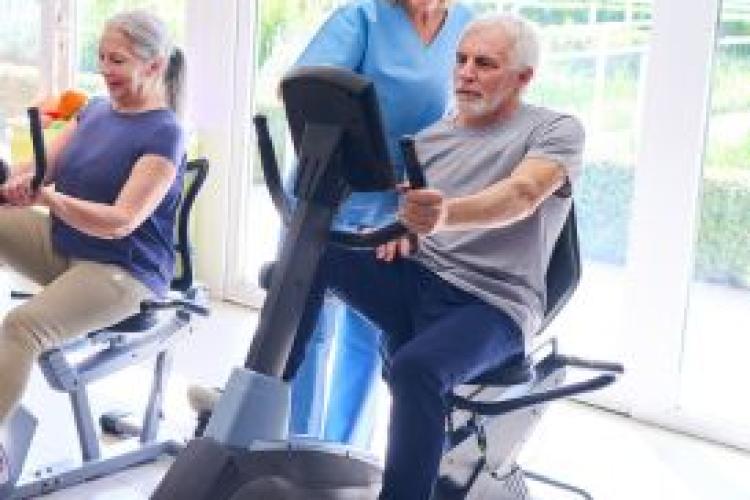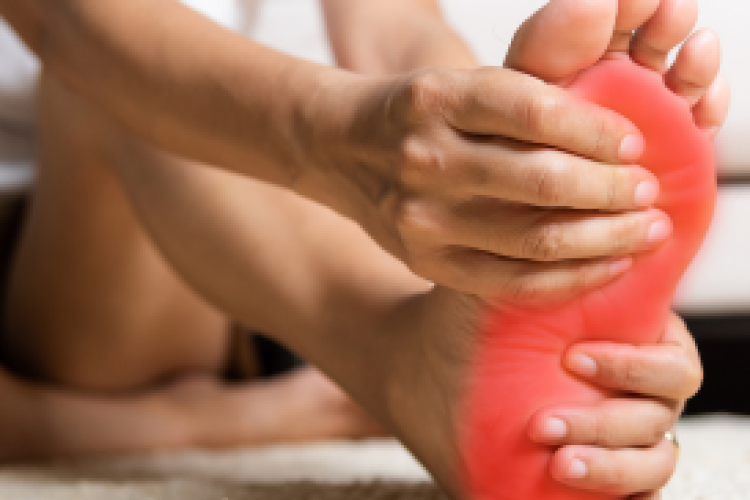The stress of living through the COVID-19 pandemic is affecting many people’s sleep. The disruption of people’s schedules, plus the worry over health, family, and finances can have a major impact on your ability to get to sleep and stay asleep. However there are steps you can take to improve your sleep during this stressful time, says Montefiore Nyack Hospital sleep medicine specialist Anita Bhola, MD.
In addition to a new—or no—schedule, people stuck at home during the pandemic may have difficulty keeping track of time. “There is disruption to daily life and people’s normal routines are turned upside down as more and more people are working from home, studying online and missing personal interaction caused by social distancing,” she said. “We need good sleep more than ever in order to navigate this challenging time.”
Affects on Physical and Mental Health
Recurring sleep deprivation can have a serious effect on your health, Dr. Bhola said. Chronic lack of sleep contributes to many chronic health conditions that include diabetes, hypertension, heart disease, and obesity. Not getting enough sleep also can affect a person’s mood, leading to irritability; anxiety, problems with relationships, loneliness, and depression.
“Not only is sleep critical to our physical and mental health, it is foundational to the functioning of our immune system,” she said. “Poor sleep compromises the immune system and may interfere with its ability to ward off the coronavirus.”
Tips to Improve Your Sleep
Whether you have had sleeping problems such as insomnia before COVID-19 or if they have only come on recently, there are concrete steps that you can take to improve your sleep during this global pandemic.
Dr. Bhola recommends:
- Set your schedule and routine.
- Maintain a consistent sleep schedule and avoid major variations in your daily sleep times. Set your alarm if needed to wake up at a fixed time, giving yourself extra time to wind down each night. You can do some light reading, light stretching, yoga, relaxation breathing exercises, or meditation. Pick a consistent bedtime to turn the lights out and try to fall asleep.
- Shower each morning and get dressed even if you are not leaving the house.
- Eat meals at the same time each day and avoid binge eating.
- Block out specific time periods for work and exercise regularly.
- Avoid long daytime naps as these can interfere with nighttime sleep.
- Reserve your bed for sleep and sex only–that means avoid bringing an electronic device to bed to work or watch a movie. If you experience difficulty falling or staying asleep for more than 20-30 minutes, get out of bed and do something relaxing in dim light and return to bed only when you are sleepy.
- Teens should avoid playing video games late at night or in the early morning hours.
- Sleep in a cool, quiet, dark room, on a comfortable, supportive mattress with clean sheets and the bed made.
- Expose yourself to natural light by spending some time outdoors every day, even if the sun is not shining. Natural light resets our body clock and going outdoors gives you an opportunity to get fresh air. Open the windows and blinds every day.
- Avoid excessive screen time as the blue light admitted by electronics suppresses the sleep-inducing hormone melatonin, which is secreted by the brain. As much as possible put electronics away for an hour before bed. When you do use electronics, employ device settings/special apps or blue light-blocking filters.
- Stay active and exercise regularly. You can go for a walk daily while maintaining a safe distance from other people or use that exercise machine that has been collecting dust in the basement for years. Even with gyms, yoga and dance studios closed, a number of these are offering live-streaming free classes.
- Avoid being overwhelmed by coronavirus-related news. Don’t watch the news right before bedtime. When video chatting with friends and family, focus on topics other than the coronavirus.
- Watch what you eat and drink. Eat a healthy diet to promote good sleep and avoid caffeine and drinking excessive amounts of alcohol especially later in the day, as they both can disrupt the quantity and quality of sleep.
- Manage stress about what tomorrow will bring by writing a ‘to-do’ list before you go to bed.
- For sleep apnea patients who use CPAP, use your equipment regularly, keep your equipment clean and do not share your machine with anyone.
- If you have severe or worsening sleep or other health problems contact your physician. Many doctors are available via email or telemedicine to discuss concerns.
“There are things that are beyond our control during the pandemic, and worrying about them is not going to help,” Dr. Bhola said. “However there are a few things that are under our control such as sleeping well during these uncertain times.”



 Upcoming Events
Upcoming Events



